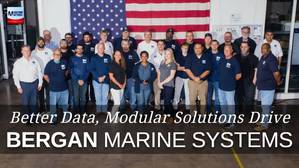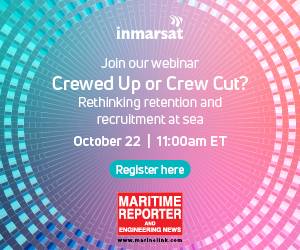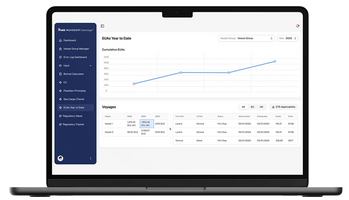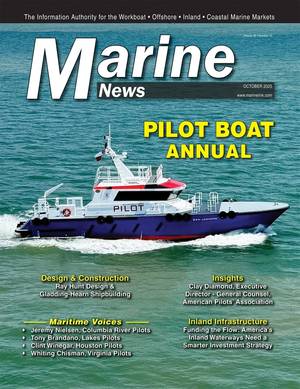Port States And Flag States: WHAT THE FLAG STATE C A N D O TO HELP THE SHIPOWNER WHEN THE PORT STATE INTERVENES
Before describing how the flag state can assist when there has been a port state intervention, it is important to stress that port state control is not a "stand alone" system, but rather, is part of a larger system that encompasses the responsibility of the flag state as well. The Earl of Caithness, U.K. Minister of State Transport, best expressed this inter-relationship in stating that "Port state control is very limited. It is but the last line of defense. If one presses too much on port state control, it diverts attention from the more important issue of flag state control." International Acceptance The responsibilities of the flag state, or state of registry, have been defined through a myriad of international conventions and regulations. Such conventions have set parameters for the roles of both port and flag states, and the system has been based on the roles as described in the following conventions: the International Convention for the Prevention of Pollution from Ships (MARPOL 73/78); the International Convention for the Safety of Life at Sea (SOLAS); the International Convention on Standards of Training, Certification and Watchkeeping for Seafarers (STCW) 1978; the Convention on International Regulations for Preventing Collisions at Sea (COLREG) 1972; the International Convention on Load Lines (LL) 1966; and the 1982 United Nations Convention on the Law of the Sea (UNCLOS). These six instruments have in effect become the charter of port and flag state safety and environmental protection.
Duties of the Flag State The flag state's role is perhaps most clearly described in the 1982 Convention on the Law of the Sea (UNCLOS). In particular, Articles 94 and 217 greatly contribute to a comprehensive understanding of how a flag state can and should work within the system to prevent port state interventions, and if an intervention does take place, how it should react.
The "Duties of the Flag State" are set forth in Article 94, which delineates the jurisdiction and control the flag state may assert over the administrative, technical and social matters of vessels flying its flag. This Article establishes steps that may be taken by the flag state to ensure safety at sea, utilize qualified surveyors and proper navigational equipment, maintain appropriate manning and crew qualifications, and cooperate in marine casualty and incidents of navigation.
The measures that may be taken by the flag state to enforce these standards are described in Article 217, which specifies that a procedure must be established to ensure that vessels failing to comply with the applicable international rules and regulations are prohibited from sailing. In addition, the flag state must provide for immediate investigations and proceedings in the event that a vessel is found to be in violation of these standards. UNCLOS was sent to the U.S.
Senate for ratification in March 1995; and although the U.S. does recognize its contents as applicable law, the U.S. Senate has yet to ratify the convention.
Duties of the Port State The SOLAS Convention contains provisions that have helped to define the roles of port and flag state. In particular, Regulation 19 sets forth the duties and responsibilities of the port state in cases of intervention. The Convention specifies procedures that should be followed with regards to verification of vessel certificates, detention of vessels, and reporting of interventions. Regulation 19 focuses on the port state's power to intervene; however, it also provides the caveat that: "When exercising control under this regulation, all possible efforts shall be made to avoid a ship being unduly detained or delayed. If a ship is thereby unduly detained or delayed it shall be entitled to compensation for any loss or damage suffered." Article 6 of MARPOL 76/78 contains a balanced description of how the systems of port and flag state should work together. Article 6 entitled, "Detections violations and enforcement of the convention," includes reference to every "player" within the system: parties to the Convention (states); vessels to which the Convention applies; and flag states. In its focus on the improper discharge of harmful substances, Article 6 sets forth the ideal cooperation levels for these parties with regards to vessel inspection, the discovery of violations, notification, investigation and enforcement proceeding. First Aid from the Flag State The flag state's role is not a new one, nor has it only recently been defined. In fact, over 2000 years ago, Pericles highlighted the importance of continual involvement: "Shipping, unlike any other technical matter, depends mainly upon constant training, and it is not appropriate to deal with it in an incidental or occasional manner. On the contrary, one has to be constantly involved, without being distracted by anything else." This constant involvement is a quality that must be exhibited by a flag state if it is to be effective. A flag state's efficiency in rendering assistance to an owner is perhaps most jeopardized by poor communication. The expertise of a flag state does not help the shipowner who fails to contact the administration when a problem arises. Prudent shipowners should always be equipped with the telephone, fax number, and other details necessary for contacting the administration's key marine safety personnel in the event of an intervention. Similarly, an effective flag state administration should provide port state authorities with a communications contact list which will ensure that port authorities interface with the appropriate representatives of the flag state administration.
As administrator of the Liberian and Marshall Islands flags, International Registries, Inc. (IRI) has found that surveys conducted to ensure compliance with SOLAS and MARPOL requirements reveal areas that are frequently deficient, and that often result in detentions; for example: (1) poor maintenance of lifesaving equipment; (2) lack of appropriate firefighting equipment; (3) improper navigation of equipment; and (4) inadequate maintenance of overboard discharge maintenance equipment (O.D.M.E). IRI's Marine Safety division draws on inspection reports, and deficiency and detention data to give shipowners information that will help them avoid inconveniences, delays, and detention costs.
A flag state that is actively involved in interventions and detentions has several methods at its disposal by which it may favorably conclude a detention, as well as prevent such problems from occurring in the future. Since so many interventions involve equipment inspections pursuant to various conventions, an operational/ safety checklist provided by the flag state can be extremely useful. Such a checklist should be used weekly and monthly, and signed by the vessel safety officers and masters at the end of every month.
Attention to the checklist is an important confidence-building measure for crews, and will ultimately be conveyed to port state officials when vessels are inspected A safety/operational checklist not only functions as a foundation for a successful vessel maintenance routine and a plan for avoiding detentions, but it also serves as an important reference tool, if and when a vessel is detained.
In light of the experience gleaned from participating in the intervention/ detention process, flag states are in a unique position to assist owners in preparing and implementing an effective vessel maintenance plan that will be successful in ultimately avoiding detentions. The System The system has been designed to be, and usually is, self-reinforcing. Environmental and safety concerns have recently become major issues for many states, and consequently, as time has passed, port and coastal states have adopted many additional requirements above and beyond those imposed by international agreement. Despite the fact that there really is only one set of internationally accepted standards and one system of enforcement, many conflicting interpretations of these standards by both port and flag state have developed.
In cases where interpretation varies, port state inspectors frequently find the opinions of the flag state and classification societies to be helpful and even persuasive.
The participation of the class societies is essential to the successful operation of the system of port state control, as the documents issued by the societies either certify compliance with, or note departure from applicable regulations.
Consequently, class societies should always be invited to participate in situations where port authorities are about to detain a vessel or have already done so. The problems caused by regional safety and environmental requirements can frequently be resolved by the participation of the flag states. For example, the U.S. Code of Federal Regulations (CFR) requires that certain equipment, such as vapor recover systems, be approved by the U.S. Coast Guard. When a chemical carrier, gas carrier or tanker is in an U.S. port, there may be a question as to whether the U.S. standard differs from that of the flag state, and if so, what standards should apply. A responsive flag state should supply port inspectors with guidelines of its interpretation of the international requirements, such as those found in MARPOL and SOLAS. If reasonably constructed, such guidelines may persuade the port state from imposing its own. In addition, the guidelines describing the flag state's interpretation may lead to a favorable outcome for the owner, especially when the vessel is manifestly safe and seaworthy, but has been questioned regarding a minor infraction such as chart corrections.
Flag States The flag state's role should be proactive rather than reactive; with its focus directed towards decreasing the number of vessels that are detained.
The International Safety Management (ISM) Code, which will become mandatory for some vessels in 1998, will require vessel operators to establish a written plan with policy objectives in support of safety management and pollution prevention. As the ISM Code is implemented, the role of flag state in both pre- and postintervention situations will change, and the code will further solidify ties between the vessel operator, port authorities, and the flag state administration.
Despite the tendency of many to focus on the inequities and problems with the system, the fact remains that the system of port/flag state implementation does work. The system may be flawed; however, flag and port states do work together effectively overall.
The future is certain to bring new laws that will strengthen the base upon which the system has been founded, and further reinforce the relationship between vessel owners, port and flag states.






